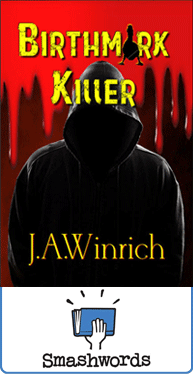A platform is not a list of your credentials, but is the ability to self-market yourself.
First, last clichés:
Still Wet Behind the Ears – Inexperienced or immature. The term refers to the fact that the last place to dry on a newborn colt or calf is the indentation behind its ears. The observation is surely older, the term dates from the early 20th century. J. F. Straker used it in his novel A Coil of Rope (1962).
Short and Sweet – Satisfyingly brief. Richard Taverner quoted this term as an English proverb back in 1539. It’s been repeated ever since, sometimes with some additions. See James Kelly, Scottish Proverbs, 1721; or F. K. Purdon, The Folk of Furry Farm, 1914.
Cliff-hanger – A situation whose outcome is in extremely suspenseful doubt until the last moment. Term comes from serialized adventure films popular in the U.S. in the 1920s and 1930s. At the end of each installment, the hero or heroine is left in a very dangerous situation, sometimes literally dangling from a cliff. This was to entice the audience to return for the next installment in order to see what happened. By the 1940s the term was being transferred to other suspenseful states of affairs; i.e. elections.
Dull as Dishwater – Boring, flat. This expression was used in 18th century as dull as ditchwater, alluding to the muddy color of the water in roadside gullies. See Dickens’ Fanny Cleaver (Olive Twist). This version survived on both sides of the Atlantic well into the 20th century. Either through similar analogy or careless pronunciation, it became dishwater—the water in which dishes had been washed and became dingy and grayish.
So, how many did you find?
Well, I’m duty bound to relate what I learned in my Tucson Nov. 22nd workshop for you all. The next session was about platform and social media.
A platform is your visibility, your influence and your networking reach. The way you speak to your readers and when you speak, who listens?
There are several elements of a platform and if you’re on a shoestring budget, most of them are free. 1. Create a website and/or blog of impressive size – you want to grow your blog as big and make it successful; 2. Create an e-newsletter/mailing list of impressive size; 3. Article/column writing for media (larger outlets and with writer’s specialty); 4. Guest contributions to successful websites, blogs, and periodicals; 5. A track record of strong past book sales; 6. Individuals of influence you know – networking personal contacts; 7. Public speaking appearances – the bigger the better; 8. An impressive social media presence on Twitter, Facebook, etc.; 9. Membership in organizations that support the successes of their own; 10. Recurring media appearances and interviews – print/radio/TV/online. You don’t have to do all of these, and you don’t want to be one on one with a reader, but pick a couple to start building on.
What you want to and must provide to your readers is value. Important Principles of a Platform: To quote Chuck Sambuchino, “It is in giving that we receive.” Try to be a guest blogger on other’s posts, so you don’t go it alone. A platform is what you are able to do right now. Above all, learn by example, and feel free to study other writer’s blog, etc. and mimic them. Use what they use. What does that mean? Well, at the end of my post, I will ask you if you want more information and give you links to other posts. I learned that in the workshop—it’s what Chuck Sambuchino does and he said feel free to steal it from him, so I did. Make yourself easy to contact, spread your reach. Start small and start early. Outline a plan, but be adaptable and make changes along the way. Be open and likeable and networked, make connections. Quantify your platform. Leverage—when you have something people want, use that opportunity. Market by not marketing. Always have the end goal in mind-the connection. Always market something; if not, market yourself.
Until text time,
Keep Writing,
Julie
If you’re new to my blog, check out:



